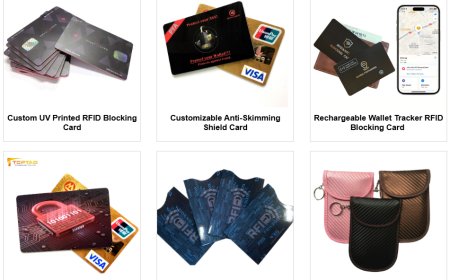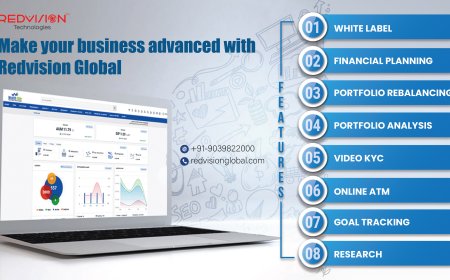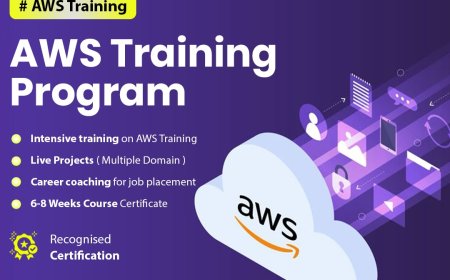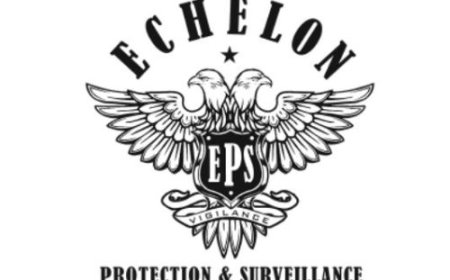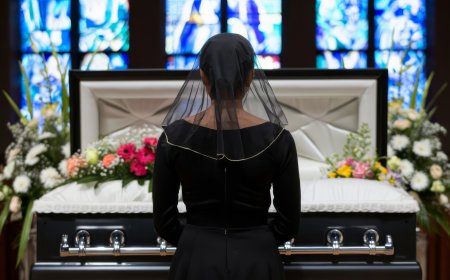How to Attend West End Theatre Shows
How to Attend West End Theatre Shows The West End of London stands as one of the world’s most prestigious theatre districts, rivaling Broadway in New York for its richness of storytelling, world-class performances, and cultural significance. Attending a West End theatre show is more than just an evening out—it’s an immersive experience that blends history, artistry, and urban energy. Whether you’r
How to Attend West End Theatre Shows
The West End of London stands as one of the worlds most prestigious theatre districts, rivaling Broadway in New York for its richness of storytelling, world-class performances, and cultural significance. Attending a West End theatre show is more than just an evening outits an immersive experience that blends history, artistry, and urban energy. Whether youre a first-time visitor to London or a seasoned theatre-goer, knowing how to navigate the process ensures you maximize enjoyment, avoid common pitfalls, and secure the best possible seats at fair prices.
This comprehensive guide walks you through every stage of attending a West End theatre showfrom planning and booking to arriving at the venue and enhancing your overall experience. With clear, actionable steps, expert tips, real-world examples, and curated resources, this tutorial empowers you to attend West End productions with confidence and ease.
Step-by-Step Guide
1. Decide on the Show You Want to See
The West End offers an eclectic mix of productions: long-running musicals like The Phantom of the Opera and Les Misrables, critically acclaimed plays such as The Curious Incident of the Dog in the Night-Time, new musicals like Hadestown, and seasonal favorites including pantomimes and holiday specials. Start by identifying your interestsare you drawn to classic tales, contemporary drama, high-energy dance numbers, or intimate storytelling?
Use official theatre websites and trusted aggregators to browse current offerings. Consider the length of the show, the age-appropriateness (many productions have minimum age recommendations), and whether the performance includes special effects like strobe lighting or loud soundscapes that may affect sensitive attendees.
2. Choose Your Dates and Times
West End theatres typically run performances Monday through Saturday, with matinees on Wednesday and Saturday afternoons. Sunday performances are rare but occasionally scheduled for special events or holiday periods. Evening shows usually begin at 7:30 PM, while matinees start around 2:30 PM.
Be mindful of peak seasonsschool holidays, major public holidays, and summer months often see higher demand and elevated prices. If youre flexible, mid-week performances (TuesdayThursday) tend to be less crowded and sometimes offer better availability. Avoid booking on Friday or Saturday nights if youre on a budget, as these are the most expensive and hardest to secure.
3. Select Your Seating Preferences
Theatre seating is divided into distinct sections: stalls (orchestra), royal circle (mezzanine), upper circle, and balcony. Each offers a different viewing experience:
- Stalls provide the closest view of the stage and are ideal for those who want to feel immersed in the performance. Seats near the center (rows GM) offer the best sightlines.
- Royal Circle is often considered the sweet spot for balance between price and view. The angle is slightly elevated, reducing neck strain and offering a panoramic perspective.
- Upper Circle and Balcony are more affordable but farther from the stage. These are suitable for those prioritizing budget over proximity, especially for musicals with large choreography.
Always check the theatres seating plan before purchasing. Many venues now offer interactive seat maps that show obstructions (e.g., pillars, overhanging balconies) and audio descriptions for visually impaired patrons.
4. Book Your Tickets
There are several legitimate channels to purchase West End tickets:
- Official Theatre Websites The most reliable source. Each theatre (e.g., The Royal Opera House, The London Palladium, The Lyceum) has its own booking portal. Buying directly ensures no hidden fees and access to exclusive offers.
- Official Ticket Partners Platforms like LondonTheatre.co.uk and ATG Tickets are authorized resellers with aggregated listings across multiple venues.
- Box Office in Person Visiting the theatres physical box office allows you to ask questions, request specific seats, and sometimes snag last-minute discounts.
- Day-of Shows and Rush Tickets Many theatres release a limited number of discounted tickets on the day of performance, either online or at the box office. These are often available for unsold seats and can be up to 50% off.
Avoid third-party resellers such as Viagogo or StubHub unless youre prepared for inflated prices and potential scams. These platforms often charge substantial markups and may not guarantee valid tickets.
5. Understand Ticket Types and Pricing
West End ticket prices vary widely based on show popularity, seating location, and time of year. A standard evening ticket can range from 25 for upper circle seats to over 200 for premium stalls during peak season. Heres how to interpret pricing:
- Dynamic Pricing Many shows now use demand-based pricing. Popular performances (e.g., opening nights, holiday weekends) cost more. Check if the price you see is fixed or subject to change.
- Concessions Discounts are often available for students, seniors (60+), under-18s, and disabled patrons. You may need to present valid ID at the theatre.
- Group Bookings Groups of 10 or more may qualify for special rates. Contact the theatre directly to arrange.
- Subscription and Membership Deals Some theatres offer loyalty programs with early access, free exchanges, or discounts on future shows.
6. Prepare for Your Visit
Once your tickets are secured, plan your arrival logistics:
- Transportation Most West End theatres are located within walking distance of major Underground stations (e.g., Leicester Square, Covent Garden, Piccadilly Circus). Use the TfL (Transport for London) app to plan your route. Avoid drivingparking is expensive and limited.
- Arrival Time Aim to arrive at least 30 minutes before curtain time. This allows time to find your seat, visit the restroom, and enjoy a pre-show drink or snack. Latecomers may be held in the foyer until a suitable break in the performance.
- What to Bring A valid ticket (printed or digital on your phone), photo ID (if required for concessions), and a small bag. Large bags may need to be stored in the cloakroom.
- Dress Code There is no strict dress code. Smart casual is common, but many attendees wear evening attire. Comfort is keyavoid restrictive clothing, especially if youre sitting for over two hours.
7. During the Performance
West End theatres uphold a culture of respect for performers and fellow audience members:
- Turn off all mobile devices or switch them to silent mode. Even the glow of a screen can distract others.
- Avoid talking, whispering, or using cameras or recording devices. Photography and audio recording are strictly prohibited.
- Clap at appropriate momentsusually after songs in musicals or at the end of acts. Dont feel pressured to cheer if the performance is subtle or dramatic.
- Respect the space: avoid leaning over seats or blocking views. If you need to exit during the show, do so quietly and only during intermission.
8. After the Show
Post-show experiences can enhance your memory of the performance:
- Cast Appearances Some shows host brief meet-and-greets or Q&A sessions after performances. Check the theatres website or social media for announcements.
- Merchandise Most theatres sell branded merchandise like programmes, cast recordings, apparel, and posters. These make great souvenirs.
- Reflection Take a moment to discuss the performance with your companions. Many West End shows are layered with symbolism, music, and historical contexttalking about them deepens appreciation.
- Leave a Review Share your experience on platforms like Google, TripAdvisor, or theatre-specific review sites. Your feedback helps others plan their visits.
Best Practices
Plan Ahead, But Stay Flexible
Booking tickets months in advance for popular shows like Wicked or Harry Potter and the Cursed Child is wise, but dont lock yourself into rigid plans. Many shows offer last-minute deals, and your schedule may change. Consider purchasing refundable or exchangeable tickets when available.
Use Price Alerts and Waitlists
Several platforms allow you to set alerts for price drops or ticket availability. For instance, if a show is sold out, you can join a waiting list and be notified if seats become available due to cancellations. This is especially useful during peak booking windows.
Explore Discount Days and Special Offers
Many West End theatres participate in national initiatives like 20 Tickets (offered on specific days) or Young West End (discounts for under-30s). Look out for:
- West End Live An annual outdoor festival in Trafalgar Square offering free performances and ticket giveaways.
- TodayTix A mobile app that features daily lottery tickets and flash sales for select shows.
- TKTS Booths Located in Leicester Square, these booths sell same-day discounted tickets (up to 50% off) for many West End shows. Arrive earlylines form quickly.
Understand the Theatres Policies
Each venue has its own rules regarding refunds, exchanges, late entry, and accessibility. Before booking, review the theatres terms. For example, some theatres do not allow exchanges once tickets are purchased, while others offer free swaps if you notify them 24 hours in advance.
Optimize Your Experience with Accessibility
West End theatres are increasingly accessible. Most offer:
- Wheelchair-accessible seating and companion tickets
- Audio description services for visually impaired patrons
- Induction loops for hearing aid users
- Relaxed performances for neurodiverse audiences (lower lighting, reduced sound, flexible seating)
- British Sign Language (BSL) interpreted shows
Always contact the theatre directly to arrange accommodations. Do not assume availabilitybook these services in advance.
Be Mindful of Cultural Norms
London audiences tend to be reserved compared to American theatre crowds. Applause is expected, but standing ovations are rare unless the performance is truly extraordinary. Avoid loud reactions, phone use, or excessive movement. Respect the silence during poignant scenes.
Consider the Full Experience
Many theatres offer pre-show dining packages or post-show cocktails. Some partner with nearby restaurants for discounted meals with your ticket. If youre celebrating a special occasion, mention it when bookingyou may receive a complimentary glass of champagne or a personalized note.
Tools and Resources
Official Websites and Booking Platforms
Always start with these authoritative sources:
- LondonTheatre.co.uk Comprehensive listings, reviews, and booking for all West End shows.
- ATG Tickets Operates many major theatres including the Aldwych, Apollo Victoria, and Dominion.
- Delfont Mackintosh Theatres Home to The Lion King, Mamma Mia!, and Wicked.
- National Theatre While technically not West End, its productions often transfer there and are essential viewing.
- Shakespeares Globe Offers unique open-air performances in summer.
Mobile Apps
These apps streamline booking and enhance your experience:
- TodayTix Offers daily lotteries, same-day discounts, and easy mobile ticketing.
- London Theatre Direct Real-time availability and seat maps for all major venues.
- Google Maps Use to navigate to theatres, check public transit routes, and read real-time reviews from other visitors.
- Soundtrap or Spotify Listen to original cast recordings before your visit to familiarize yourself with the music and lyrics.
Review and Research Sites
Read before you book:
- WhatsOnStage.com Professional reviews, interviews, and award coverage.
- Theatre Weekly News, previews, and behind-the-scenes features.
- TripAdvisor Audience reviews with ratings on seating, sound, and overall experience.
Free Resources
Take advantage of these no-cost tools:
- West End Theatre Map Downloadable PDF maps from Visit London show all theatre locations and nearby transit stops.
- YouTube Channels Official show trailers, behind-the-scenes footage, and performance highlights (e.g., The Phantom of the Opera: 30th Anniversary).
- Podcasts The Theatre Podcast and Stage Door offer interviews with actors, directors, and designers.
Accessibility and Inclusion Resources
Ensure inclusive access:
- Department for Transport Accessibility Guide Covers transport and venue access.
- Sense Offers guidance for sensory-friendly theatre experiences.
- BSL Zone Find BSL-interpreted performances and resources.
Real Examples
Example 1: Booking The Phantom of the Opera for a First-Time Visitor
Sarah, a tourist from Canada, wanted to see The Phantom of the Opera during her week-long London trip. She started by visiting the official website and selected a Wednesday evening show in the royal circle. She used the interactive seating map to avoid a partially obstructed seat near a pillar. She booked two tickets with a student discount (using her international student card) and received digital tickets via email. On the day of the show, she took the Piccadilly Line to Covent Garden, arrived 40 minutes early, and enjoyed a pre-show cocktail at the theatres bar. She found the performance breathtaking and purchased the official cast album afterward. Her experience was seamless, thanks to early planning and direct booking.
Example 2: Attending a Last-Minute Show with a Group
James and four friends were in London for a business conference and decided to see Les Misrables on their final night. All tickets were sold out online. They visited the TKTS booth in Leicester Square at 3 PM and secured four upper circle seats for 45 eachhalf the regular price. They arrived at the theatre at 6:30 PM, stored their coats, and had time to grab a quick bite at a nearby pub. The performance was powerful, and they left feeling moved. James later shared his experience on a travel forum, helping others learn about TKTS.
Example 3: Accessible Theatre Experience
David, who is visually impaired, wanted to attend Hadestown. He contacted the Royal Victoria Halls accessibility team two weeks in advance and requested an audio-described performance. They provided him with a headset and a detailed script description before the show. He also brought his companion, who received a free ticket. David reported that the audio description enhanced his understanding of the staging and choreography, making the experience deeply personal and enriching. His feedback prompted the theatre to expand its audio-described offerings.
Example 4: Young Audience Discount
Emma, a 24-year-old student, used the Young West End program to buy 15 tickets to Dear Evan Hansen. She downloaded the TodayTix app, entered the lottery, and won two seats for a Friday night show. She arrived early, took photos outside the theatre, and posted about it on Instagram. Her friends were inspired to try it themselves. Emma later joined the theatres youth advisory panel to help shape future youth initiatives.
FAQs
What is the best way to get discounted West End tickets?
The most reliable ways to save are: booking mid-week, using TKTS booths for same-day discounts, joining loyalty programs, applying for student/senior concessions, and entering daily lotteries via TodayTix. Avoid resellersthey rarely offer true discounts.
Can I buy tickets at the theatre on the day of the show?
Yes. Many theatres sell remaining tickets at the box office on the day of performance. Arrive earlypopular shows sell out quickly. Some theatres also release online rush tickets at 10 AM on the day of the show.
Are children allowed in West End shows?
Most shows have age recommendations, usually listed on the official website. Generally, children under 5 are not permitted. For musicals, children aged 812 are often welcome if they can sit quietly. Always check the specific shows policy.
How long do West End shows typically last?
Most musicals run between 2.5 to 3 hours, including one intermission. Plays are often shorter, around 2 hours. Always check the runtime on the shows official page.
Is there a dress code for West End theatres?
No. Smart casual is typical, but youll see everything from jeans to evening gowns. Comfort and confidence matter more than formality.
Can I record the performance?
No. Recording audio or video is strictly prohibited and may result in ejection. Cameras are not allowed in the auditorium.
What if I arrive late to the show?
Latecomers are usually seated during a natural pause in the performanceoften after the first act or a major scene. Staff will guide you to your seat quietly. Arriving late may mean missing critical moments.
Are there food and drink options inside the theatre?
Yes. Most West End theatres have bars and kiosks selling snacks, soft drinks, wine, and cocktails. Some offer pre-booked dining packages. Outside food and drink are generally not permitted.
How early should I book tickets for a popular show?
For top-tier shows like Wicked, Harry Potter, or The Lion King, book 36 months in advance, especially for weekends or holidays. For lesser-known shows, booking 48 weeks ahead is usually sufficient.
Do I need to print my tickets?
No. Most theatres accept mobile tickets displayed on smartphones. Ensure your device is charged and the barcode is clearly visible. Some venues may require ID verification, so bring a photo ID.
Conclusion
Attending a West End theatre show is a quintessential London experienceone that combines world-class talent, architectural grandeur, and emotional storytelling. Whether youre drawn to soaring musical numbers, gripping dramas, or innovative stage design, the West End delivers unforgettable moments. The key to a successful visit lies in preparation: choosing the right show, booking wisely, understanding your seating options, and respecting the traditions of live theatre.
By following this guide, youll navigate the process with confidence, avoid costly mistakes, and fully immerse yourself in the magic of live performance. Use the tools and resources provided to plan ahead, stay informed, and remain flexible. Remember, the best seat isnt always the most expensiveits the one that allows you to connect with the story.
So take a deep breath, book your tickets, and step into the hushed anticipation of the auditorium. The curtain is about to riseand the West End is waiting.













